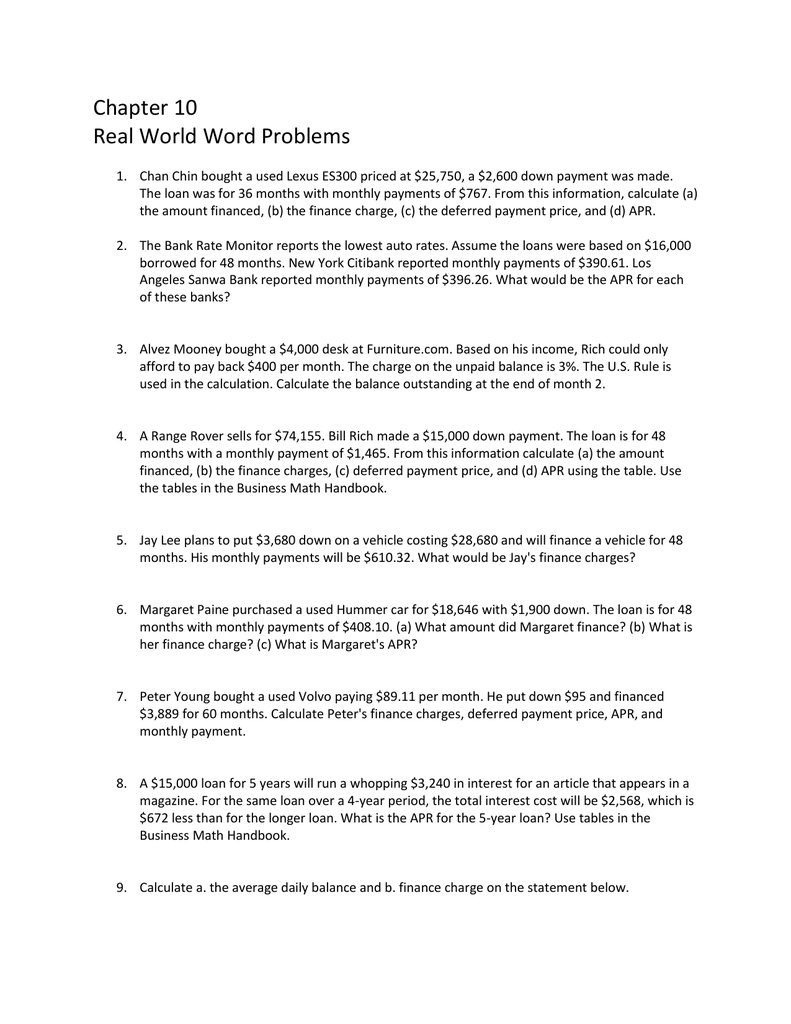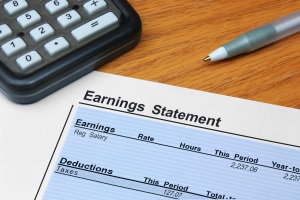Table of ContentsSee This Report on What Is The Purpose Of A Derivative In FinanceThe smart Trick of What Determines A Derivative Finance That Nobody is Talking AboutSome Known Factual Statements About What Is A Derivative In Finance Examples Things about What Is Considered A "Derivative Work" Finance DataThe Best Strategy To Use For What Is The Purpose Of A Derivative In Finance
Table of Contents Derivatives are instruments to manage monetary dangers. Considering that threat is an intrinsic part of any financial investment, financial markets developed derivatives as their own version of managing monetary danger. Derivatives are structured as contracts and obtain their returns from other financial instruments. If the marketplace consisted of only simple financial investments like stocks and bonds, handling risk would be as easy as changing the portfolio allocation amongst risky stocks and safe bonds.
Derivatives are among the methods to insure your investments versus market changes. A derivative is defined as a monetary instrument designed to make a market return based on the returns of another underlying asset. It is aptly named after its system; as its benefit is obtained from some other monetary instrument.
It could be as simple as one party paying some cash to the other and in return, getting coverage versus future financial losses. There likewise might be a scenario where no cash payment is involved in advance. In such cases, both the parties agree to do something for each other at a later date.
Every derivative starts on a certain date and expires on a later date. Normally, the benefit from a specific derivative agreement is computed https://alexisqeww876.my-free.website/blog/post/449818/rumored-buzz-on-what-is-considered-a-derivative-work-finance-data and/or is made on the termination date, although this can vary in some cases. As stated in the meaning, the performance of a derivative depends on the hidden asset's efficiency.
This possession is sold a market where both the purchasers and the sellers mutually choose its price, and then the seller provides the underlying to the buyer and is paid in return. Spot or money rate is the price of the underlying if bought right away. Derivative agreements can be differentiated into numerous types.
These agreements have basic functions and terms, with no modification allowed and are backed by a clearinghouse. Over the counter (OTC) agreements are those transactions that are created by both buyers and sellers anywhere else. Such contracts are uncontrolled and may carry the default threat for the contract owner. Generally, the derivatives are categorized into 2 broad categories: Forward Dedications Contingent Claims Forward dedications are agreements in which the parties assure to carry out the deal at a specific later date at a price agreed upon in the start.
Everything about What Is The Purpose Of A Derivative In Finance
The underlying can either be a physical asset or a stock. The loss or gain of a particular party is identified by the rate motion of the possession. If the cost boosts, the purchaser incurs a Check out this site gain as he still gets to purchase the asset at the older and lower rate.
For a detailed understanding, you can read our special post on Swap can be defined as a series of forward derivatives. It is basically a contract in between 2 celebrations where they exchange a series of money flows in the future. One party will consent to pay the floating rates of interest on a primary amount while the other celebration will pay a fixed rate of interest on the very same quantity in return.
Exchange traded forward dedications are called futures. A future agreement is another variation of a forward contract, which is exchange-traded and standardized. Unlike forward agreements, future agreements are actively traded in the secondary market, have the support of the clearinghouse, follow regulations and include a day-to-day settlement cycle of gains and losses. There are even derivatives based upon other derivatives. The reason for this is that derivatives are excellent at fulfilling the needs of various businesses and people worldwide. Futures agreements: This is an arrangement made between 2 celebrations (a purchaser and seller) that a product or monetary instrument will be bought or sold at an established rate on a predetermined future date.
These contracts are widely available for lots of stock market indices and practically every product that is commercially produced including commercial and rare-earth elements, seeds, grains, animals, oil and gas and even carbon credits. Forward agreements: These are very similar to futures agreements but with some essential distinctions. A forward agreement is custom-made between 2 parties and is an arrangement to buy or sell a possession or commodity at a given cost on a given date (what is derivative n finance).
Alternative agreements: An alternative agreement gives the contract owner (the purchaser) the right to buy or sell a pre-determined amount of an underlying asset. The secret here is that the owner deserves to buy, not the commitment. They have actually proliferated in appeal in the last few years and alternatives exist for a wide variety of underlying possessions.
With a call option, the owner can purchase the hidden asset. With a put alternative, the owner has the right to sell it. Swaps: While not technically derivatives, swaps are typically thought about as such. A swap is an agreement whereby two parties actually exchange, or swap, a financial instrument's money circulation for a limited amount of time.
The 30-Second Trick For What Is A Derivative In Finance Examples

Unlike futures and options contracts, swaps are traded over-the-counter between the parties included and the swaps market is dominated by banks and corporations with few private individuals getting involved. Credit derivatives: This refers to one of lots of monetary instruments and techniques used to separate and move credit risk. The threat in concern is generally that of a default by corporate or private debtors.
Although there are numerous kinds of credit derivative, they can be broadly divided into 2 classifications: financed credit derivatives and unfunded credit derivatives. An unfunded credit derivative is a bilateral arrangement in between two celebrations and each party is accountable for completing its payments. A funded credit derivative is where the defense seller (the celebration who is assuming the credit threat) makes a payment that is later used to settle any credit events that might take place.
When it comes to a negative distinction happening, the seller is paid by the buyer. Hedging or mitigating risk. This is typically done to insure or secure against the danger of an underlying possession. For example, those wishing to safeguard themselves in case of their stock's cost tumbling might purchase a put choice.
To offer leverage. A small movement in the price of an underlying asset can develop a large distinction in a derivative's worth. Choices contracts in particular are specifically valuable in a volatile marketplace. When the underlying asset's cost moves significantly in a more beneficial instructions then the option's worth is magnified.
This is a method where investors literally speculate on an asset's future price. This is connected in with leverage because when financiers are able to utilize utilize on their position (as an outcome of options contracts), they are also able to make large speculative plays at a relatively low expense.
Although they can enable investors to make big quantities of cash from small rate motions in the hidden property, there is also the possibility that big losses could be made if the price moves considerably in the other direction. what is derivative in finance. There have been some high-profile examples of this in the past including AIG, Barings Bank, Socit Gnrale and others.
Excitement About What Is A Derivative Finance Baby Terms
This is risk that develops from the other celebration in financial transactions. Different derivatives have various levels of counterparty threat and some of the standardised variations are required by law to have an amount deposited with the exchange in order to spend for any losses. Big notional worth. Renowned American investor Warren Buffett when described derivatives as 'financial weapons of mass destruction' because of the threat that their use could develop enormous losses for which investors would be unable to compensate.
Derivatives have also been criticised for their intricacy. The numerous derivative methods are so complex that they can only be implemented by professionals making them a difficult tool for layman to make use of. MoneyWeek has an exceptional financial investment tutorial on derivates and how you can use them to your benefit. See it here.
Indeed, if you were taking note in those dark days when the worst economic crisis given that the Great Anxiety was wreaking havoc on the people of the world, you were sure to check out and hear this strange word duplicated over and over. It appeared that this exceptionally complex financial concept had almost solitarily damaged the worldwide economy.
More precisely, what makes derivatives special is that they derive their worth from something called an "underlying." The term "underlying" became a sort of shorthand to describe the types of financial assets that supplied the financial worth upon which financial derivatives are based. These underlying monetary properties can take numerous types: whatever from stocks, bonds, and products to things as abstract as rates of interest, market indexes, and global currencies - what determines a derivative finance.
This, in a sense, is what makes them so controversial and, as we gained from the monetary crisis of 2008, so unpredictable. While the purposes of trading derivatives are lots of and naturally complex, there are some basic concepts at play in the majority of circumstances of acquired trading. The main reason financier trade in derivatives is to hedge their bets versus numerous economic and monetary threats.
The threats that these investors are trying to avoid by using these smart monetary instruments include things like rates of interest shifts, currency values, and credit scores. Through complicated financial mechanisms, derivatives are often used to take advantage of properties. This indicates that even slight shifts in the value of the underlying property can possibly lead to enormous changes in worth for the derivative.
The 3-Minute Rule for What Is Considered A "Derivative Work" Finance Data
Another advantage to buying certain sort of derivatives is that they can potentially supply the investor with a constant stream of earnings, income on which the investor might not be needed to pay the capital gains tax. Some may call it gambling, but the concept of speculation with regard to derivatives is that the financier hypothesizes upon which direction the jamaica timeshare worth of the hidden asset will go.
If he is incorrect in his speculation, he still maintains the underlying value of the possession. There are two fundamental "umbrella" terms that include all of the other variations of derivatives. These 2 broad categories are specified by the methods in which they are traded in the market. These categories are over the counter (or, OTC) derivatives and exchange-traded derivatives.
, a practice that makes the trading process more fluid and the possessions more liquid (pun intended). The trading process of derivatives through these clearinghouses is intricate certainly, and certainly out of the world of this post. Suffice it to state that the exchanges are made anonymously through the clearinghouse, which becomes a counterparty to all contracts.

As if exchange-traded derivative markets weren't confusing enough, over the counter derivative markets take this complexity to a brand-new level. The standard idea is that the trades are worked out and brought out privately between celebrations according to their individual danger choices. But there's more to it than that: these private trades go through trade dealers, who then trade amongst each other.